Brazil election: Silva backs Neves in blow for Dilma
- Published
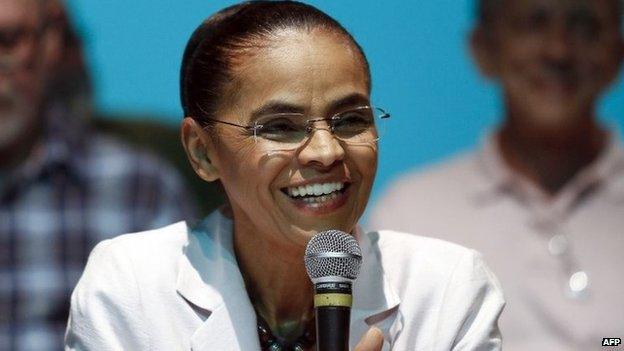
Marina Silva was voted for by more than 22 million Brazilians in the first round
The Brazilian environmentalist Marina Silva, who came third in Sunday's presidential election, has backed opposition centrist candidate Aecio Neves in the second round.
Mr Neves won 33.5% of the votes in the first round to 41.5% for President Dilma Rousseff, who is running for a second four-year term.
Ms Silva failed to qualify for the 26 October run-off, with 21.3%.
She cited Mr Neves's "commitments" as the reason for supporting him.
On Saturday, he announced in an open letter to the nation that he would include in his manifesto issues such as land reform, the demarcation of indigenous lands, the rights of rural communities and environmental concerns.
Those issues formed a key part of Ms Silva's campaign.

Analysis by Wyre Davies, BBC News, Sao Paulo
When in a similar position four years ago, Marina Silva chose not to endorse any of the remaining two candidates and took a back seat as Dilma Rousseff went on to win the election, succeeding President Lula.
And while Marina is unlikely to play a prominent, visible role in Aecio Neves's campaign, her endorsement is a big boost to his bid for the presidency and will add to the perception that, after 12 years of unbroken PT [Workers Party] rule, the rest of Brazil is ready for change.
Marina Silva posed such a threat to Dilma Rousseff in the early part of the campaign that the incumbent's tactic was to attack her opponent's policies and her character. It was an offensive which Marina was unable to turn on its head and was partly the reason why she fell away so badly before the first round of voting.
So although Dilma and Marina should, theoretically, be ideologically close having served as ministers in Lula's government, their personal animosity meant that Marina's support for Aecio was almost a "given".
Brazil's opinion polls will probably reflect this news with an even bigger lead for the PSDB candidate over President Rousseff, but the polls are notoriously volatile and should not be taken as any indicator how the voting will go on 26 October.

'Time to change'
"I prefer to be criticised for my actions while fighting for what I believe in and for what is best for Brazil," she said.
Ms Silva, who grew up in a poor family of rubber tappers in the Amazon, is a former environment minister.
She fell out with the Workers Party government now led by Ms Rousseff and eventually founded her own political movement, Rede Sustentabilidade (Sustainability Network).
Ms Rousseff said Ms Silva's endorsement of Mr Neves, who is seen as a pro-business candidate, was "understandable".
"She is closer to the economic programme of Aecio [Neves] than to the social programme of my government," said Ms Rousseff.
Mr Neves, who is running for the Social Democratic Party, received the news "with much emotion and responsibility," he said.
"We are now one body, in one common project to help Brazil and all Brazilians."
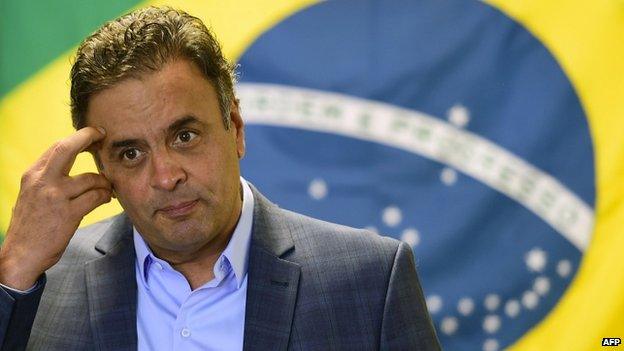
Mr Neves comes from a family of politicians in Minas Gerais state
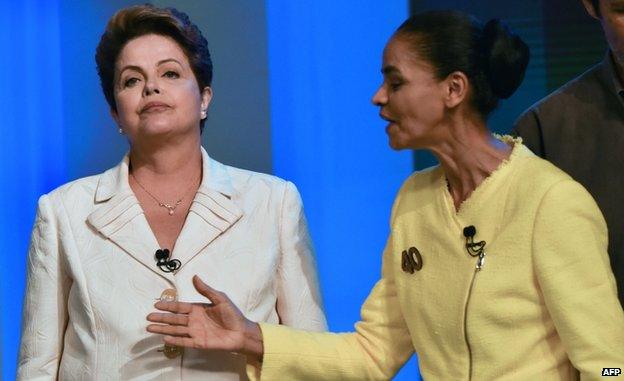
The body language between Ms Rousseff (left) and Ms Silva was almost hostile at times during the campaign
Ms Silva stood as the Socialist Party candidate after presidential contender, Eduardo Campos, died in a plane crash in August.
Once she entered the race, she overtook Mr Neves in opinion polls, but her popularity dropped in the final weeks of the campaign.
Many of her supporters blame Ms Rousseff's attacks against Ms Silva's policies and record in the run-up to the vote for the result.
Ms Silva, a former Workers' Party member, had been seen as ideologically closer to Ms Rousseff.
But she indicated over the past week which way her support was likely to go.
"The results show that most Brazilian want a change," she said.
The Workers Party came to power nearly 12 years ago with Luiz Inacio Lula da Silva as president.
Its policies are credited with lifting at least 30 million people out of poverty.
But the government has faced allegations of corruption and of overspending in preparations for this year's football World Cup.
In the next two weeks, Ms Rousseff will be defending her record on social programmes and the economy against those who say it is time for change in Brazil, says the BBC's Wyre Davis in Rio de Janeiro.
- Published6 October 2014
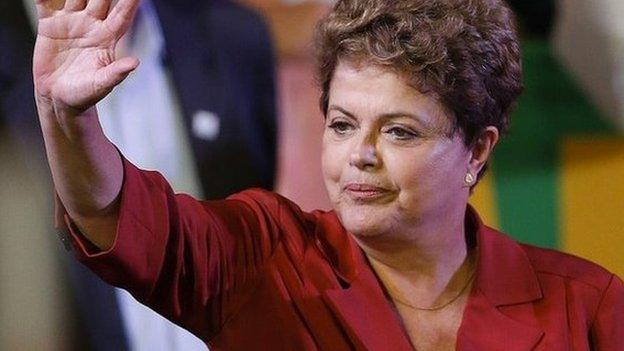
- Published6 October 2014
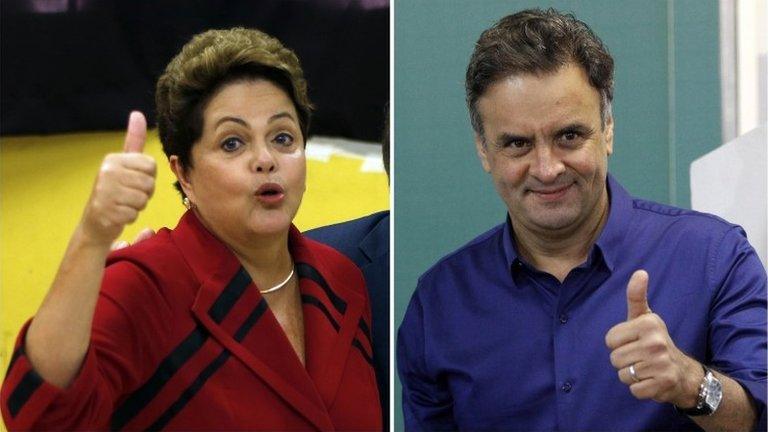
- Published6 October 2014
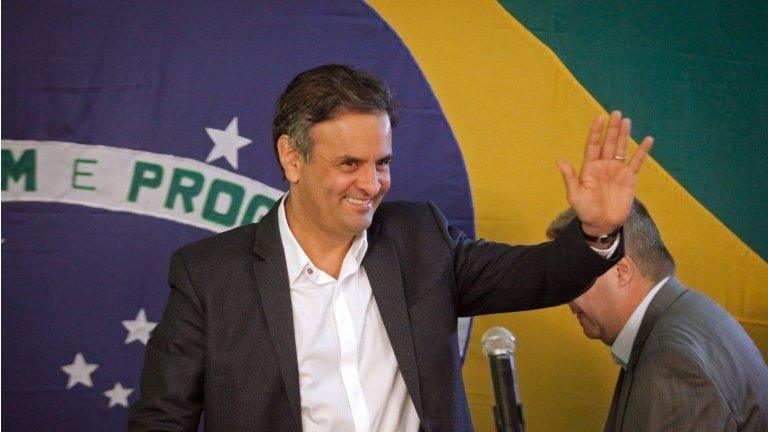
- Published2 October 2014
